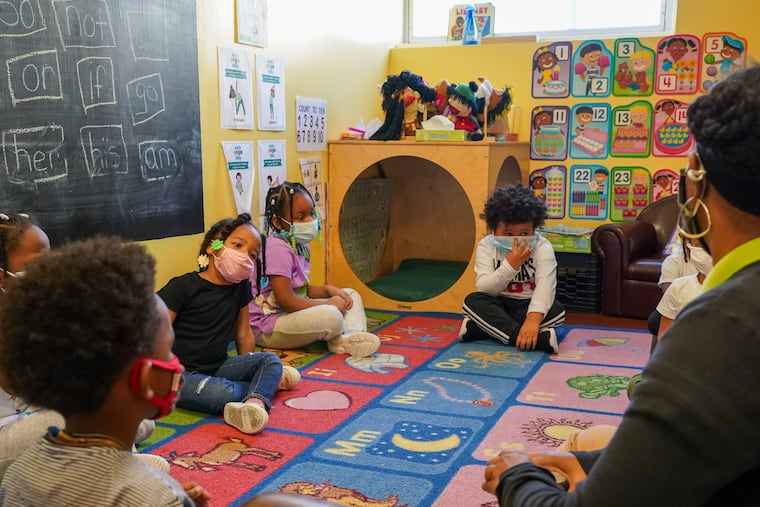I’m a highly qualified preschool teacher. Why won’t the state recognize that? | Opinion
I have a master’s in education and 15 years of experience. But I have the same state ranking as a high school graduate with no work experience.

I love my job as a preschool teacher. I love my students, my school, and our mission to increase equity in early childhood education. But I can’t run on love alone, and neither can thousands of my fellow educators.
For starters, I’ve worked hard to get where I am: I have two advanced degrees and have spent more than 15 years as an educator. But after all that, I make $16.50-an-hour — which is actually slightly higher than the median pay for preschool teachers, according to the Bureau of Labor Statistics. This means there are thousands of women (because let’s face it, my profession is dominated by women) who make less than this. They may have even more degrees or experience than I do.
But low pay is far from the only problem early educators are facing in Pennsylvania.
» READ MORE: Study: Preschool teachers make near-poverty wages in Pa.
To recognize quality in this field, Pennsylvania relies on what is known as the Keystone STARS, a quality rating and improvement system. Participating centers can achieve STAR designations 1-4, each level representing a new tier of professionalism and commitment to quality and growth. Centers, such as Arch Street Preschool where I work, are encouraged to think of Keystone STARS as a tool to support continuous quality improvement, including for individual teachers. Schools with more highly rated teachers can climb up the STAR ratings, unlock much-needed funding, and attract more students.
I recently received a report on my current progression through the STAR system, which is governed by the Pennsylvania Department of Education through the Office of Child Development and Early Learning.
Although their own website and promotional videos would have you believe there are many pathways to demonstrate career competencies, such as equivalent degrees, years of experience, or additional coursework, this has not proven to be the case.
How do I know? Because despite my degrees and more than a decade and a half of experience, I received the same ranking as a high school graduate with no work experience.
I appealed my designation — not for vanity, but because it affects my school’s overall STAR designation. The response was an email that let me know that, despite my experience and training (which includes 65 hours of Keystone STARS-endorsed professional development), I don’t have the right training. Specifically, after reviewing my transcripts from my advanced degrees, the reviewers determined that many of my courses don’t count toward comparable competencies in an industry where I’ve spent most of my professional life. (When was the last time your employer analyzed your degree transcripts?)
My two advanced degrees are a master’s in education and a bachelor’s in English. To get the “right” training, according to Keystone STARS, I would need a lot more credits — dozens — in early childhood education. This degree was not offered at my graduate school when I was there in 2008. (And apparently, the Keystone program does not take my years of experience into consideration, either.) Keystone STARS may offer some financial help toward a degree in early childhood education, but the debt will be placed squarely on my shoulders — and I likely won’t get a higher salary as a result. This is a debt burden I’m wary to take on.
Why doesn’t Keystone STARS appear to recognize actual experience in the field? If we keep promoting only those who can afford higher-level degrees, how can we, as an industry, expect to recruit more educators of color if we keep erecting more false barriers?
“If we keep promoting only those who can afford higher-level degrees, how can we, as an industry, expect to recruit more educators of color if we keep erecting more false barriers?”
If the overall goal is to ensure the quality of educators in our early childhood centers, we need to change this, perhaps by convening panels of industry review boards or committees to review educators’ backgrounds, who can weigh professional experience or education adjacent to this work. Setting aside the bevy of systemic issues that early childhood education providers already face (low pay, worse benefits, a public perception as glorified babysitters), this seems like an easy fix.
I urge my fellow Pennsylvanians and my fellow early childhood educators to contact the Keystone STARS leadership and ask (or demand) a process to allow for more equitable, commonsense career advancement. If we are to really advance through a defined professional pathway, we need lanes for everyone.
Lyssa Horvath is an early childhood educator at Arch Street Preschool.